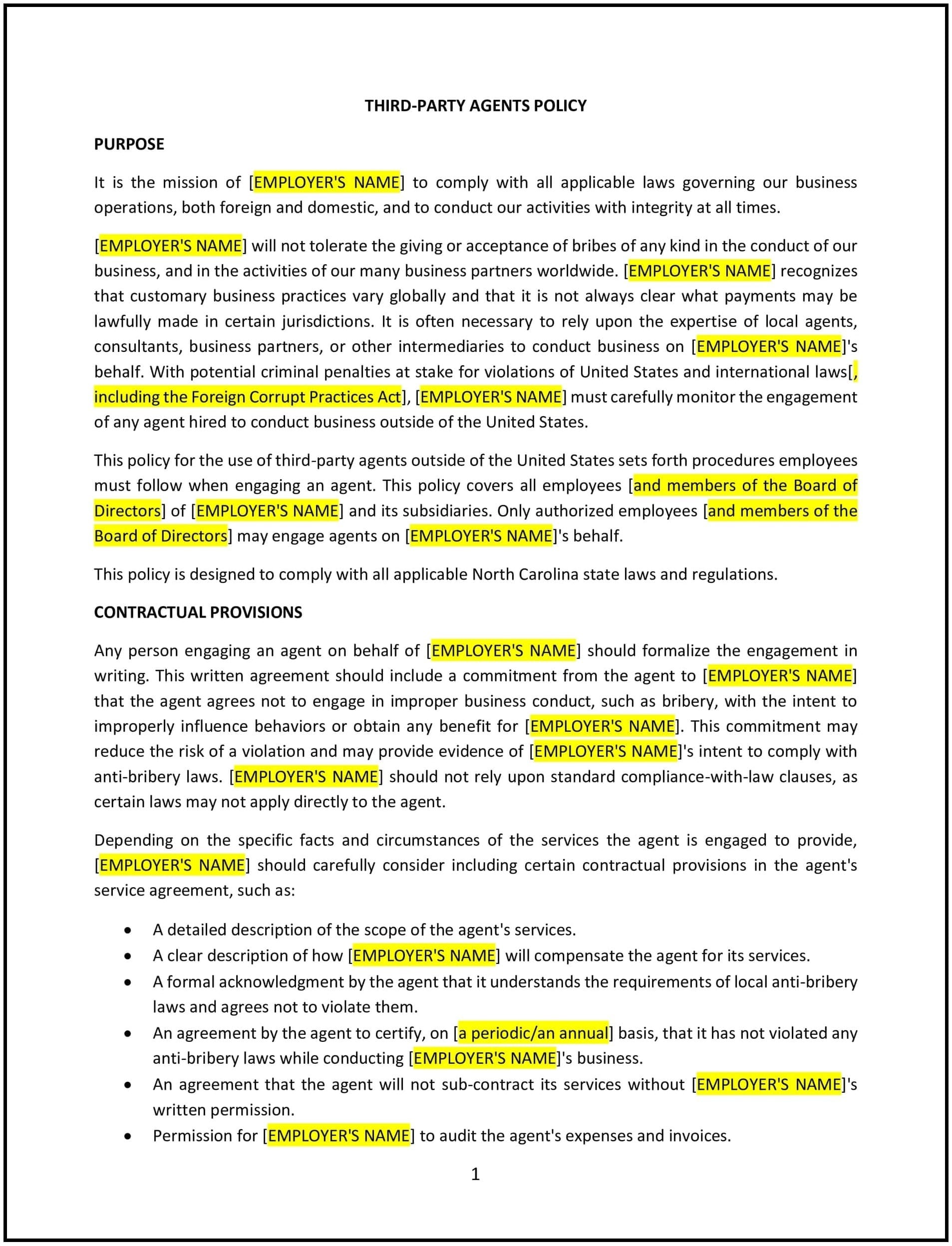Third-party agents policy (North Carolina): Free template
Got contracts to review? While you're here for policies, let Cobrief make contract review effortless—start your free review now.

Customize this template for free
Third-party agents policy (North Carolina)
This third-party agents policy is designed to help North Carolina businesses establish guidelines for working with external vendors, contractors, or representatives. It outlines procedures for selecting, managing, and monitoring third-party agents to ensure accountability and alignment with business values.
By adopting this policy, businesses can mitigate risks, maintain quality standards, and foster strong partnerships with third-party agents.
How to use this third-party agents policy (North Carolina)
- Define third-party agents: Clearly explain who qualifies as a third-party agent, such as vendors, contractors, consultants, or representatives.
- Establish selection criteria: Provide guidelines for evaluating and selecting third-party agents, including due diligence and background checks.
- Outline expectations: Describe the standards and requirements for third-party agents, such as compliance with laws, ethical practices, and performance metrics.
- Address monitoring and oversight: Explain how third-party agents will be monitored, including regular reviews, audits, or performance evaluations.
- Include termination procedures: Specify the steps for terminating relationships with third-party agents if they fail to meet expectations or violate the policy.
- Train employees: Educate staff on the policy and their responsibilities when working with third-party agents.
- Review and update: Assess the policy annually to strengthen alignment with evolving business needs and regulatory requirements.
Benefits of using this third-party agents policy (North Carolina)
This policy offers several advantages for North Carolina businesses:
- Mitigates risks: Reduces the likelihood of legal, financial, or reputational risks associated with third-party relationships.
- Ensures accountability: Promotes adherence to laws, regulations, and ethical standards when working with external partners.
- Maintains quality: Ensures third-party agents meet the business’s standards for performance and professionalism.
- Enhances transparency: Provides clear guidelines for managing and monitoring third-party relationships, fostering trust.
- Builds trust: Demonstrates a commitment to responsible and ethical business practices.
Tips for using this third-party agents policy (North Carolina)
- Communicate clearly: Ensure all employees and third-party agents understand the policy and their responsibilities.
- Provide training: Educate employees on selecting, managing, and monitoring third-party agents effectively.
- Monitor relationships: Regularly review third-party performance and compliance to identify potential issues.
- Encourage feedback: Seek input from employees and third-party agents to improve the policy and processes.
- Update regularly: Review the policy annually to strengthen alignment with business needs.